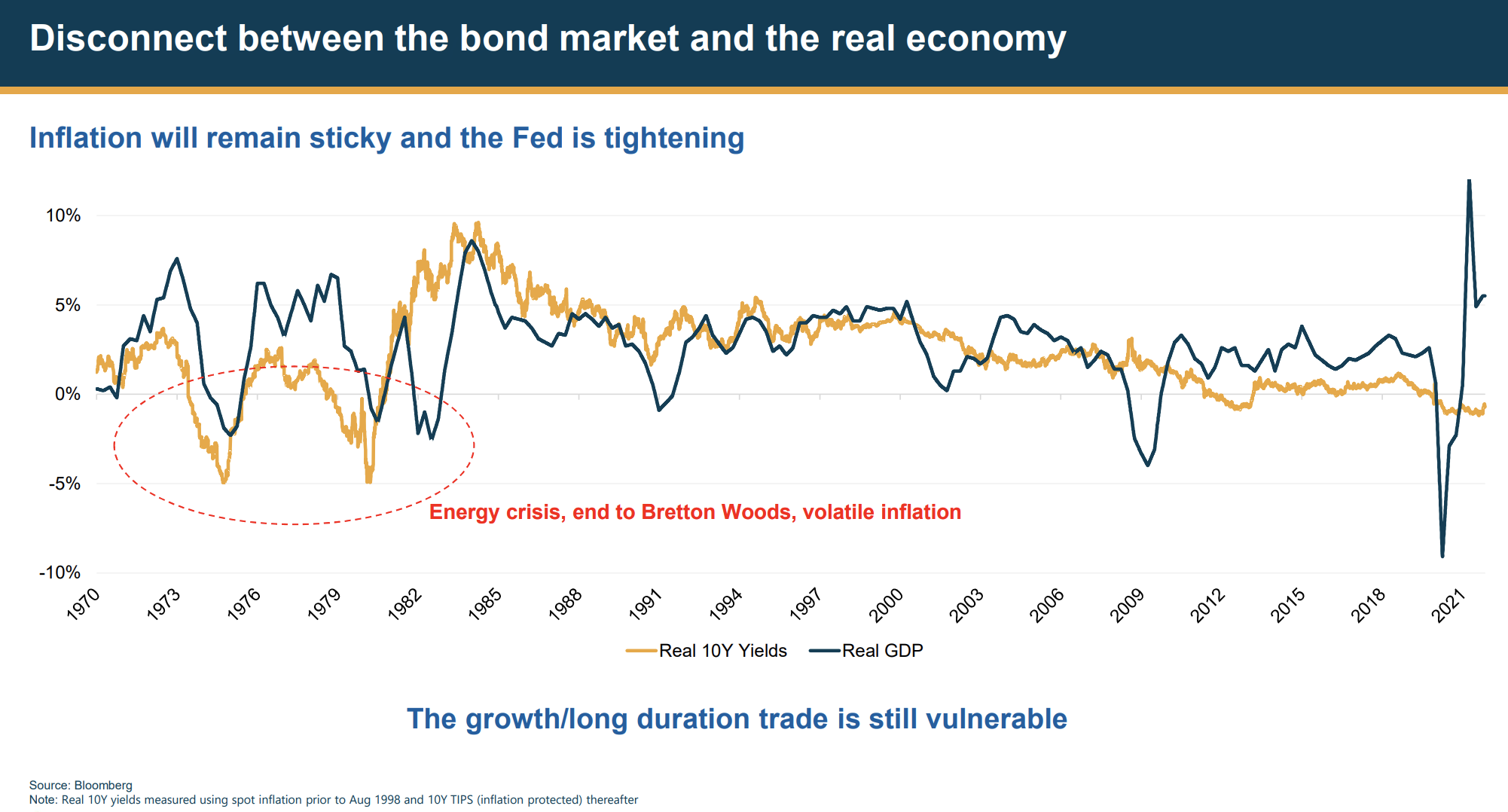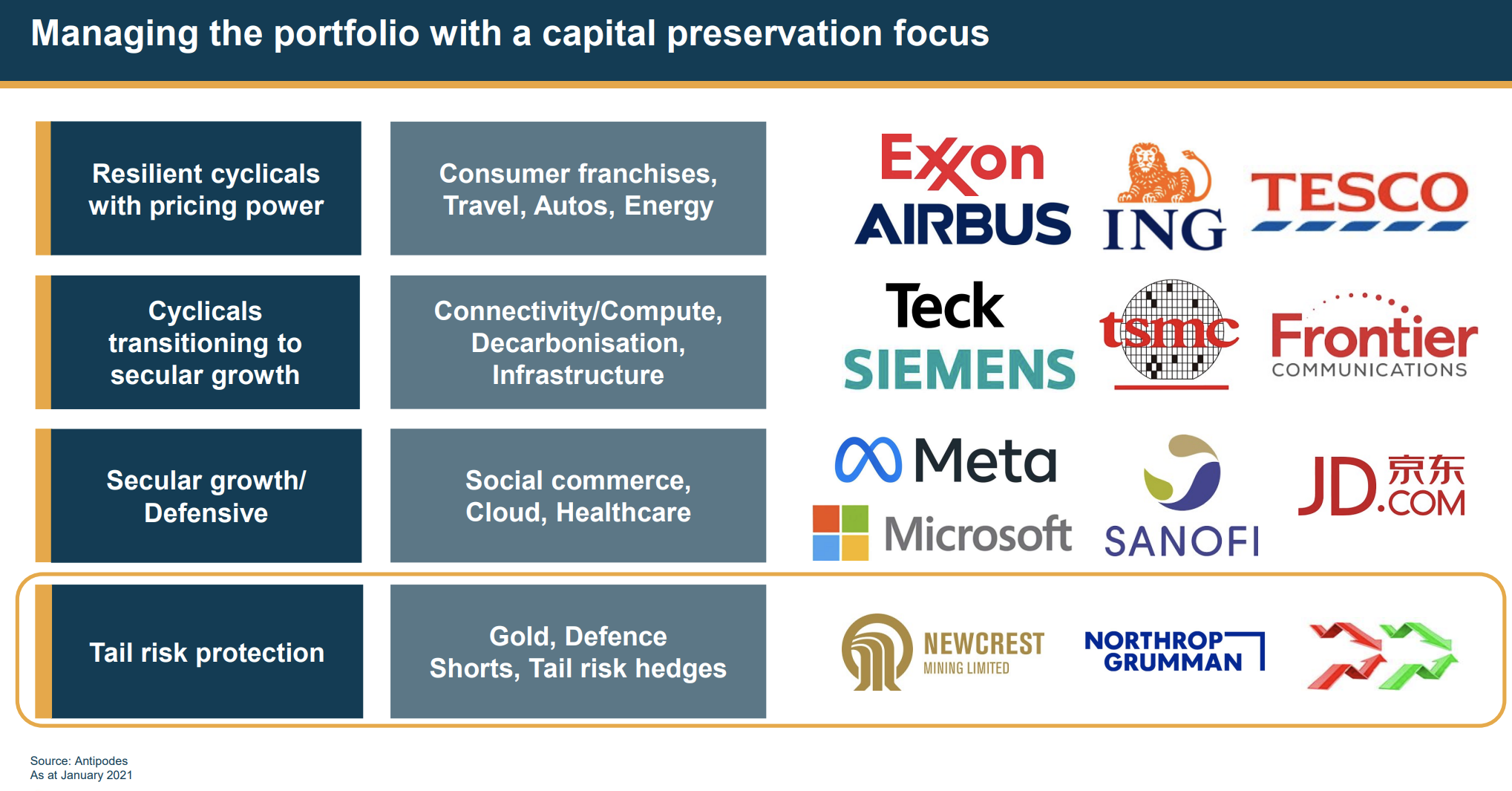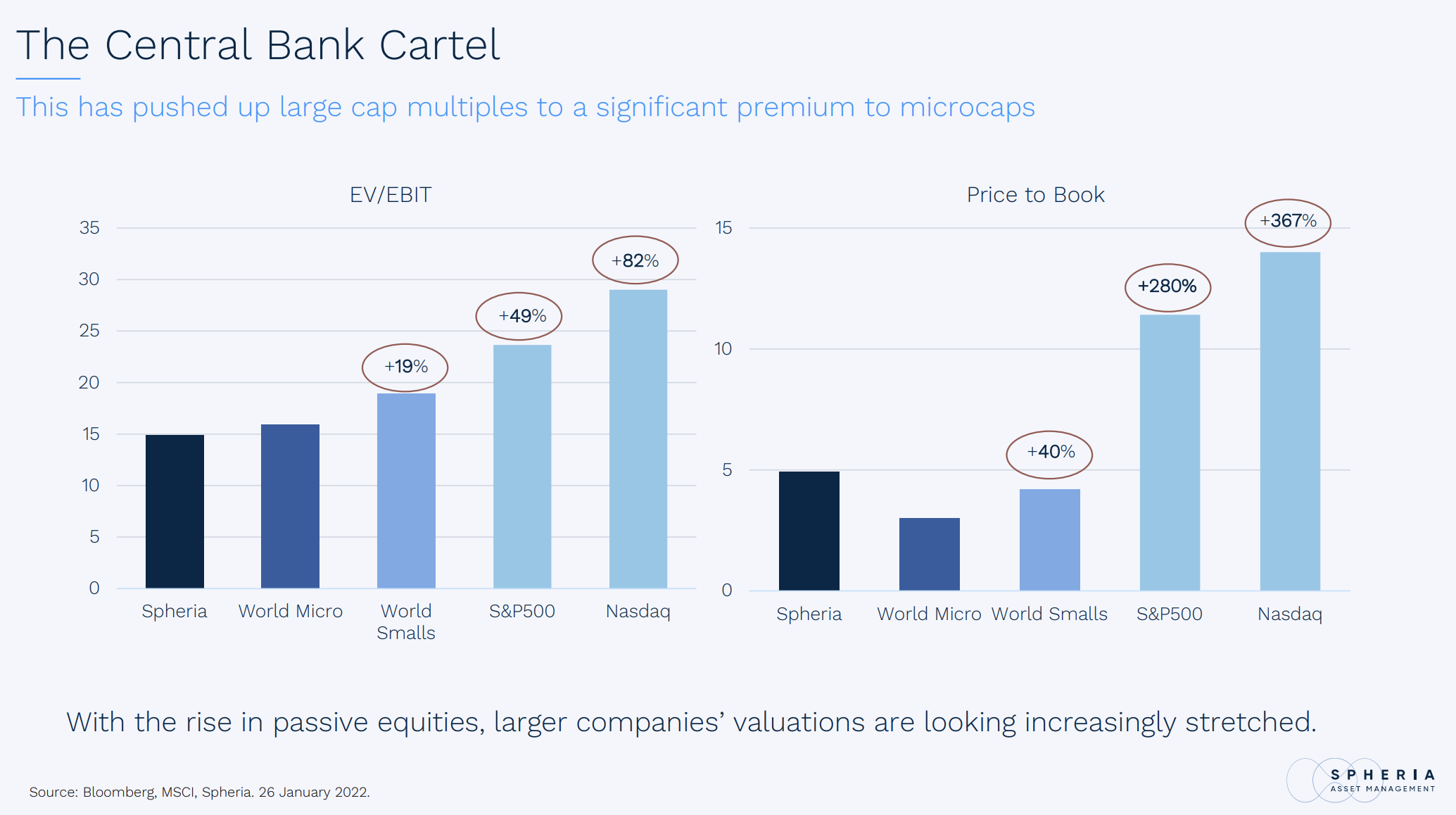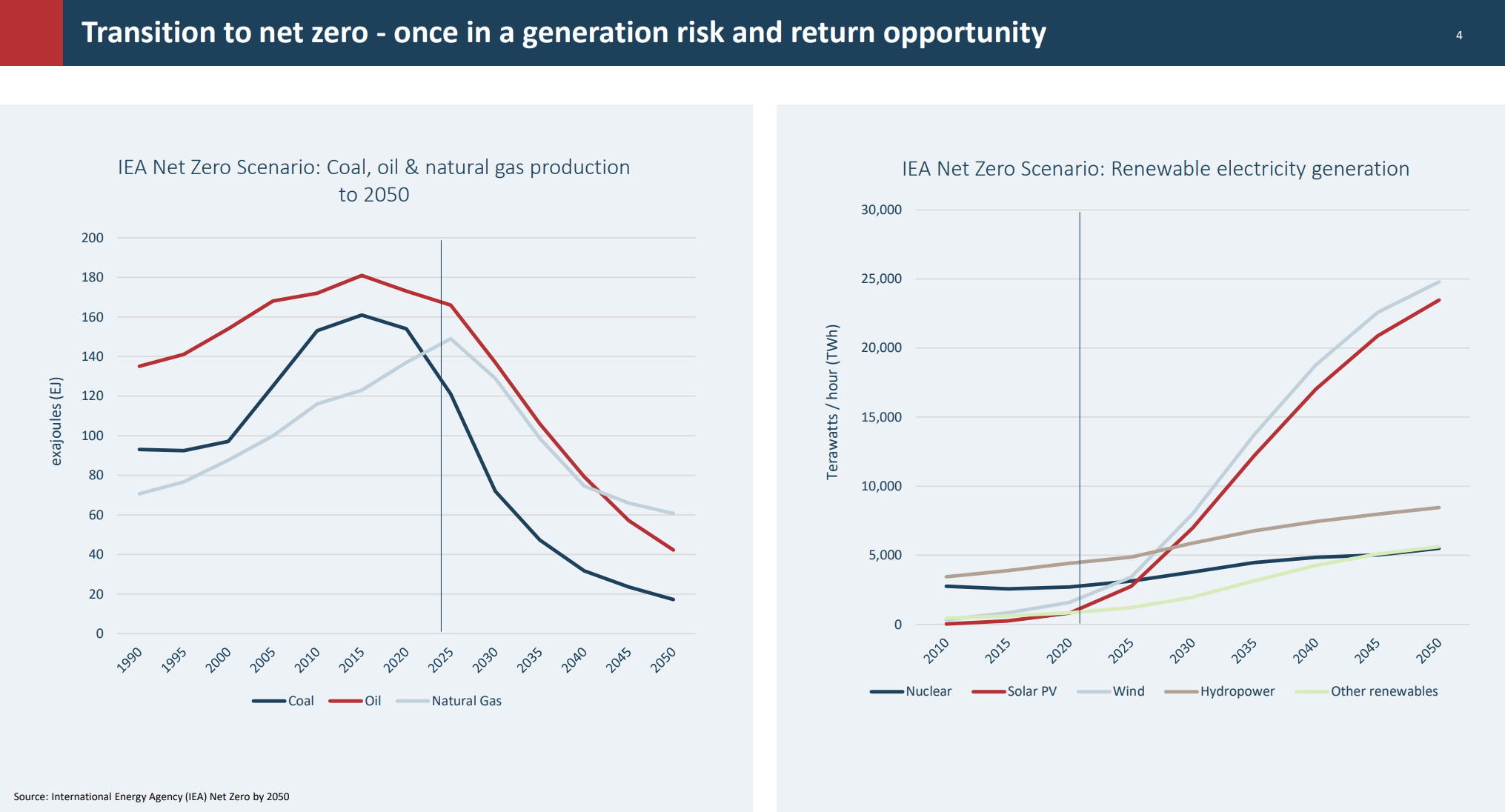Inflation, decarbonisation and positive change: This time is (sort of) different

Livewire Markets
A sweeping assessment of what investors might expect in 2022, Pinnacle Investment Management's Global Equities forum provides a glimpse of the trends and macro factors affecting the stock market.
While the usual themes of rising interest rates and inflation are discussed, each of the speakers bring their own nuanced perspectives to why this is an opportune time to think differently about investing in global equities (and a chance to look beyond US equities, in particular).
In this special on global equities, Antipodes' Jacob Mitchell and Spheria's Gino Rossi provide a macro view of the uncertainty in 'value vs growth' traps across markets and industries and why you shouldn't negate the potential in global micro caps. This is put into further context through Resolution Capital's Sarah Lau and Firetrail Investments' Patrick Hodgen's analysis of the mirror opportunities in sustainable investment.
Is this time different?
While global equities had another record year in 2021 - with large cap tech once again leading the charge - Antipodes founder Jacob Mitchell maintains that the evolving scenario for global equities in 2022 should give us pause with slowing growth in the US and inflation uncertainty.
"This time does look different: There is a disconnect between what the modern market is telling us and what we can observe in the real economy. The Fed hasn't changed its rhetoric. Quantitative Tightening has accelerated. Asset purchases will conclude in March, and we could see the first rake hike fairly quickly."

That's not to say we're walking into the year without some leeway: household savings are strong thanks to stimulus measures while services spending is expected to normalise as we reopen.
But as Mitchell points out, we're entering an uncertain period where equities will continue to be re-priced by higher real yields and inflation will remain above trend even as supply chains normalise.
This is particularly the case for US equities, which are costly and remain most vulnerable to higher yields and new investment trends, such as decarbonisation.
For Mitchell, there are two risk factors - economic growth and inflation shock - which would represent a difficult environment for equities broadly.
"An economic growth disappoint could come from a hard landing in China if easing is delayed or is too gradual. This would coincide with a deceleration in the West as stimulus recedes. The Fed tightening into slowing growth could compound this problem. This would be a challenging environment for cyclicals and weaker companies or 'value traps'.
"The second risk is an inflation shock from structurally higher or more volatile inflation led by the US. Discount rates could continue to rise, and that's going to make things difficult for high multiple companies in 'growth traps'."

And while China has the power to stimulate global growth, the country is at a tipping point with a dramatic slowdown in the property sector combined with weaker exports.
Micthell says he plans to protect against such risks through "resilient businesses with pricing power and discipline around valuations. This will allow us to avoid both value traps and growth traps."
Got alpha?
Perhaps unsurprisingly, Gino Rossi, portfolio manager of Spheria's Global Microcap Fund, is even less bullish on some of the world's biggest large cap companies, observing that there is real divergence between equal and market cap weighted indices.
He uses Apple as a prime example, which was trading at "73% below the current share price as little as early 2019."
"Like many, we would point the finger at Central Banks: Before the GFC, earnings used to explain nearly half the S&P500's returns. Since the GFC, the bigger factor is Fed balancing.
Rossi adds that with the wave of liquidity going to larger stocks, the overall metrics of the market are not looking attractive.
"There is a very tight correlation between Central Bank balance sheets and equity returns."

While he believes it would be hard to construct a sound portfolio given such a blow-out in large caps, there is an 'undiscovered universe' of small and micro caps - with around 48% of stocks in the MSCI World Microcap Index having no coverage.
Some of Rossi's lesser-known picks with free cash flow, high returns and low gearing include:
- Concentric, a manufacturer of cooling and fuel pumps with a focus on emissions standards and electrification.
- Fashionette, a German premium fashion accessory e-retailer with a strong European presence across Europe and expansion opportunities, and
- OTC Markets Group, which owns and operates the largest over-the-counter equities exchange in the US.
It's all about conviction
Given the vast array of choices in global equities, a core theme of the event revolved around finding those alpha opportunities most likely to bring about positive change, or as Firetrail's Patrick Hodgens described it: a better future for the planet.
That's no easy feat considering Firetrail say they narrowed their search from an investible universe of 800 companies, but for Hodgens it comes down to three characteristics: a sustainable business model, sustainable earnings and sustainable positive change.
"Some of the bigger alpha opportunities are achieved when companies are undergoing significant change," says Hodgens. He added that, in his experience, current and future leaders with a sustainable mindset can change the long-term direction of earnings and valuations down the track, but remain "cheap" relative to their peers.
A few of the S3 Global Opportunities Fund's companies with opportunities in increased long-term profitability and sustainable growth include:
- Weyerhaeuser, a US REIT which sustainably grows and harvests trees for building projects, with a 31.1 billion market cap,
- International Flavors and Fragrances (IFF), which holds a huge share of the ingredients market in what is a consolidated industry, leaving IFF with substantial pricing power.
A mirror them of sustainability exists for Rescap's Sarah Lau, portfolio manager of the Global Listed Infrastructure Fund. For Lau, the positive outlook for greater mobility of goods (and people) could provide strong secular tailwinds for GLI's infrastructure assets as the market continues to find some semblance of normalcy from the pandemic.
But arguably the real opportunity is in electric utilities and renewables, which represent just under half of the GLI portfolio and are underpinned by the strong tailwind in decarbonisation.
"You can see why Greta Thunberg is calling for urgent action: we need to be slamming those brakes hard on fossil fuels (if the trajectory is correct). We don't know the pace of the energy transition; what is clear to us as investors is that there is a once in a generation risk-and-return opportunity favouring renewables. On the other hand are fossil fuels, which are in steady decline."

The decarbonisation tailwind has been helped by the extravagant funding already in place in the US and Europe - with Biden's 'Build, Back, Better' plan worth US$440 billion and Europe's $700 billion Green Deal - but Lau calculates that much more funding will be needed for a renewable infrastructure overhaul.
"Investments in power generation will need $947 billion per annum, and the leading renewables players will get a share of this. They have a good track record of delivering strong returns from projects, and also proven execution ability."
Lau also references $733 billion needed for the necessary reinvestment into older power grids every year.
"Why is this such a big number? Firstly, if we are to electrify our cars and switch from natural gas, that will see an increase in demand from 40-60%. The existing systems need to be upgraded. Secondly, we need to be connecting up renewables."
One leading renewables player in the GLI fund is Scottish and Southern Electric (SSE), which owns the largest offshore wind farm in Europe and now has upgraded its capex of 65% per annum to 2026. As SSE is supported by the UK's net-zero strategy, it also holds long-term growth opportunities in electrification and a hedge against inflation.
While Rescap is not interested in manufacturing supply chain risk and slim margins, or the more speculative technology development risks, they are focussed on generating good risk adjuster returns and capital preservation from a net-zero future.
"It's a great time to be an infrastructure investor."



Never miss an insight
Enjoy this wire? Hit the ‘like’ button to let us know. Stay up to date with my content by hitting the ‘follow’ button below and you’ll be notified every time I post a wire.
Not already a Livewire member? Sign up today to get free access to investment ideas and strategies from Australia’s leading investors.
5 topics
2 funds mentioned
5 contributors mentioned

Meg Kerr (she/her) is a Content Editor at Livewire Markets with experience writing for financial publications, including Stocks Down Under and Fat Tail Media. She has a passion for content creation, especially in the resources and commodities space.
Expertise

Meg Kerr (she/her) is a Content Editor at Livewire Markets with experience writing for financial publications, including Stocks Down Under and Fat Tail Media. She has a passion for content creation, especially in the resources and commodities space.
